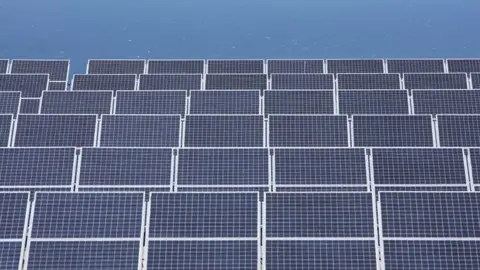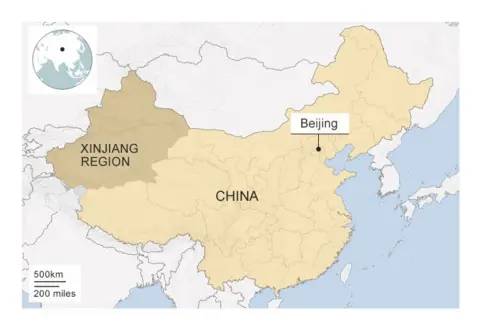China uses Uyghur forced labour to make solar panels, says report
 BBC
BBCThe global production of solar panels is using forced labour from China's Uyghur Muslims in Xinjiang province, an investigation has found.
Xinjiang produces about 45% of the world's supply of the key component, polysilicon, the research by the UK's Sheffield Hallam University says.
It says the material is obtained under a massive system of coercion, a claim denied by the Chinese authorities.
The report urges top panel makers to source the component elsewhere.
Solar panels are in huge demand because of climate change.
Polysilicon is extracted from mined quartz, and the research says the world's four biggest manufacturers use materials tainted by a massive system of coercion.
"The [Chinese] government claims that these programmes are in accordance with PRC [the People's Republic of China] law and that workers are engaged voluntarily, in a concerted government-supported effort to alleviate poverty," the report says.
"However, significant evidence - largely drawn from government and corporate sources - reveals that labour transfers are deployed in the Uyghur Region within an environment of unprecedented coercion, undergirded by the constant threat of re-education and internment."
China is facing mounting criticism from around the world over its treatment of the mostly Muslim Uyghur population in the north-western Xinjiang autonomous region.
Human rights groups believe China has detained more than a million Uyghurs over the past few years in what the state defines as "re-education camps".
There is evidence of Uyghurs being used as forced labour and of women being forcibly sterilised.
The US is among several countries to have accused China of committing genocide and crimes against humanity through its repression of the Uyghurs.
China denies such allegations, saying it has been combatting separatism and Islamist militancy in the region.


